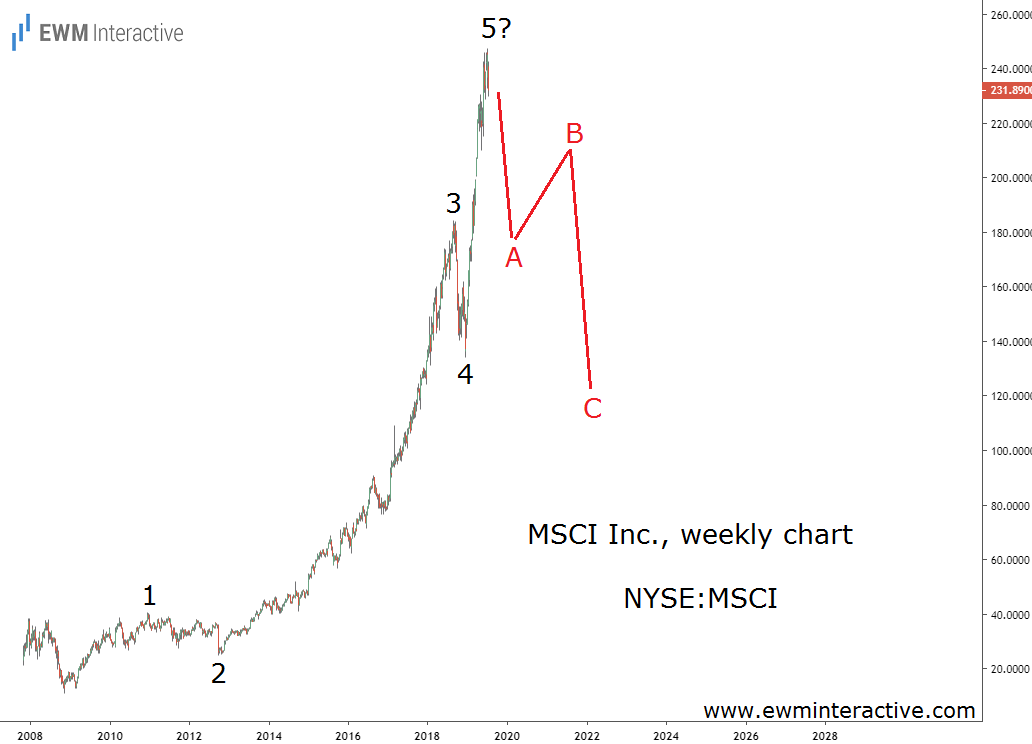MSCI was barely holding above $11 a share in November 2008. Earlier this month it reached an all-time high of $247.57. This 2140% return in less than 11 years, not counting the dividends, makes MSCI one of this bull market’s best performers.
Anyone who had the insight to buy MSCI stock during the past decade made money, regardless of the price paid. However, investors should never confuse brains with a bull market. No trend lasts forever and the price you pay always matters, eventually.
Extrapolation of past performance into the future makes everything look cheap in a bull market. Unfortunately, it is also the surest way for investors to part ways with their money sooner or later. So instead of joining MSCI bulls in the eleventh year of the uptrend, let’s take a look at the stock through the lens of the Elliott Wave principle.

The weekly chart above reveals that the structure of the rally from $11.06 forms a five-wave impulse pattern. It is labeled 1-2-3-4-5, where wave 3 is extended. The guideline of alternation has been taken into account, too. Wave 2 was a sideways correction, which took almost 2 years to develop. Wave 4, on the other hand, was a sharp drop that needed just a few months.
MSCI Stock Cannot Defy Gravity Forever
This brings us to wave 5, which saw MSCI stock climbing 84% in just seven months. The problem is that the fifth wave is the final wave of the sequence. According to the Elliott Wave theory, a three-wave correction follows every impulse.
The impulse MSCI stock has been drawing since late-2008, although a big one, is no exception. In fact, it only means the anticipated retracement should be of great magnitude, as well.
The negative phase of the wave cycle usually erases all of the fifth wave’s gains. For MSCI stock, this means targets in the support area of wave 4 near $130 a share are plausible. If this count is correct, the professional information services company can lose roughly 40% of its market cap.
Besides, the Elliott Wave chart above is not the only reason to be skeptical about MSCI’s upside potential. The stock is trading at a forward P/E ratio of 37, which is quite expensive even for a company growing at 25% per year. Its strong fundamentals make MSCI a great business, but in our opinion it is a risky investment at $232 a share.
